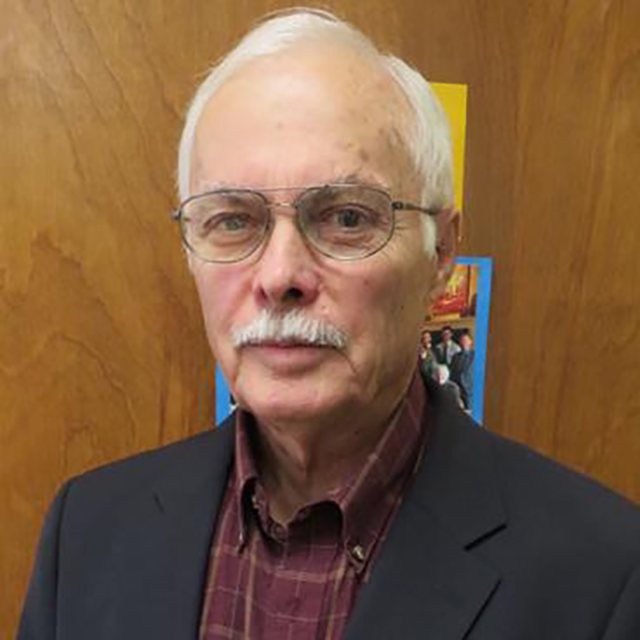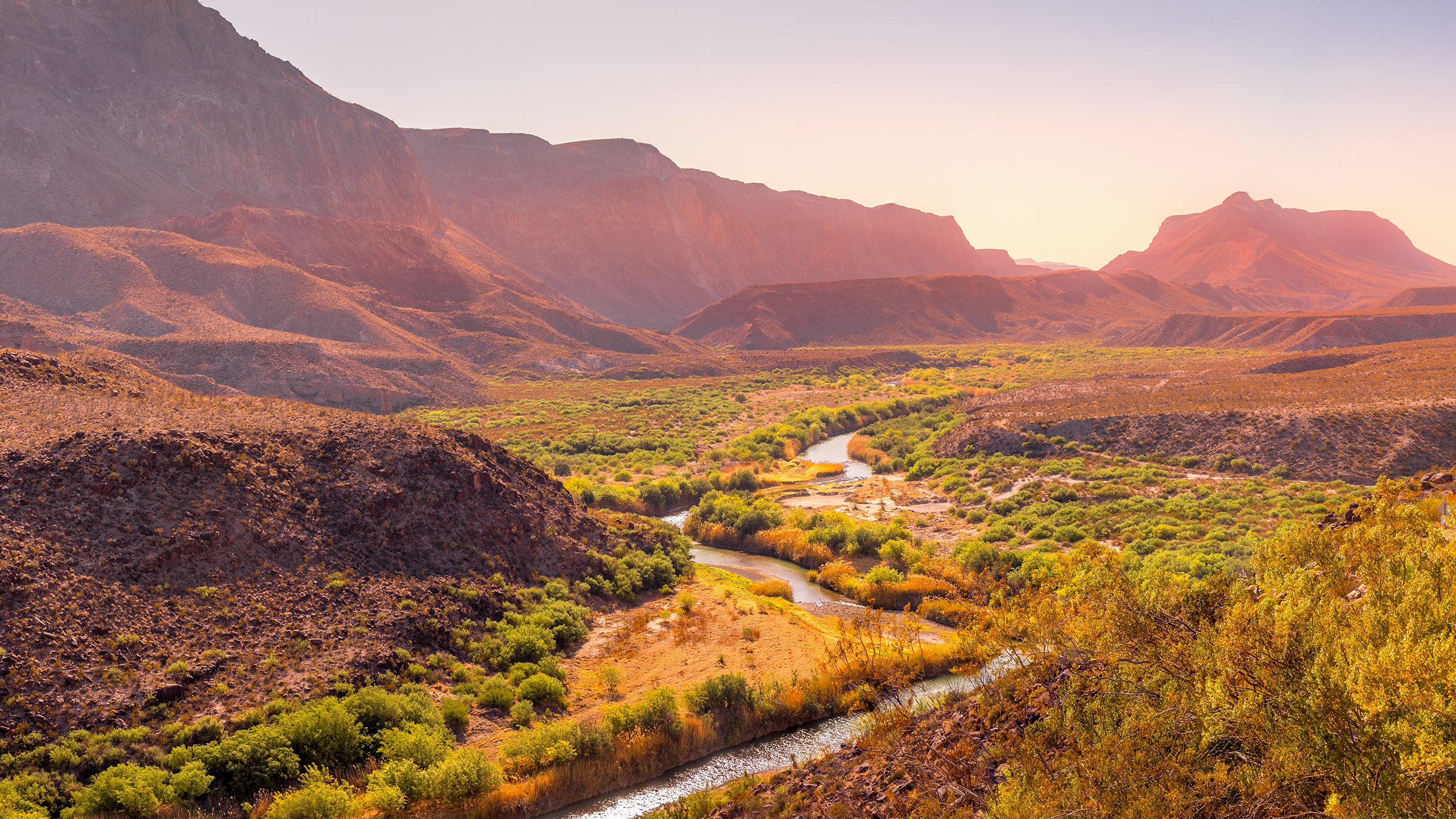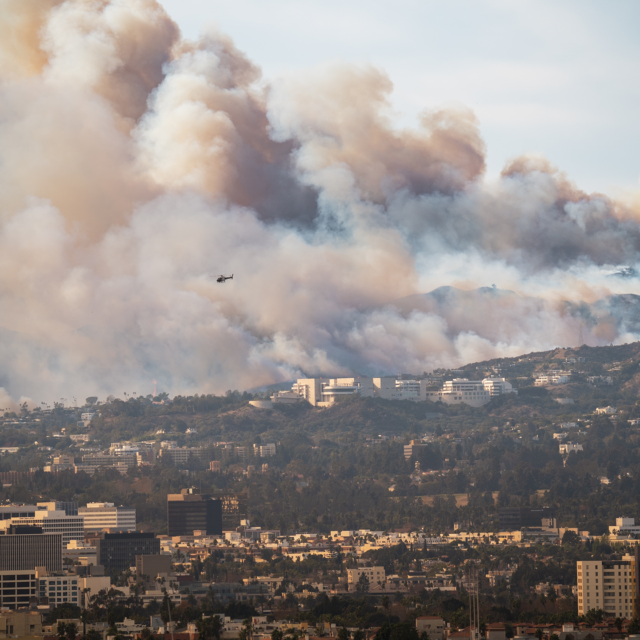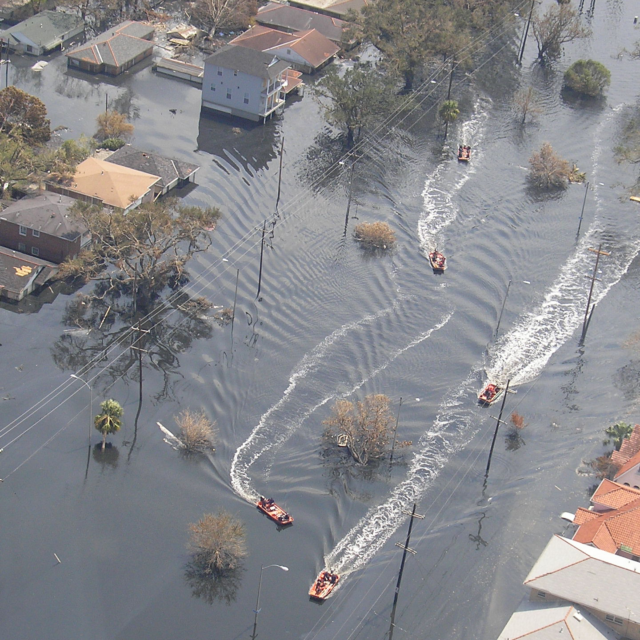Listen and subscribe to us on your favorite podcast platform:
“Most cities on both sides of the border are dealing with the threats of climate change…and that has obvious implications for the recharge of aquifers. Many cities along the border depend completely on groundwater. And that creates tension in the region.“
Francisco Lara-Valencia, professor at the School of Transborder Studies at Arizona State University
“We’re going to have to move away from these fixed quantities of water that are being promised or obligated from one country to another and focus on the reliability of the resource…Because let’s face it, farmers have to plan several years ahead… So, it doesn’t really work if you have high variability in deliveries.“
Stephen Mumme, author of Border Water: The Politics of U.S.-Mexico Transboundary Water Management, 1945-2015
Alongside immigration, there is another issue testing diplomacy between the U.S. and Mexico in 2024. Increasingly unpredictable weather patterns in combination with growth in both population and industrial demand have made it difficult, if not impossible, for the two nations to meet the obligations defined by their 1944 U.S.-Mexico Water Treaty.
The Tijuana, Rio Grande, and Colorado Rivers have long supported the growing border region. However, like the Colorado River Compact between U.S. states, the 1944 international treaty was developed during a 30-year period of unusual regional water abundance–extremely disparate from today’s climate and demand. Intense strain is already being felt by water users on both sides of the border, and the future will be increasingly difficult if aging policies and infrastructure cannot be quickly brought up-to-date.
The International Boundary and Water Commission (“Comisión Internacional de Límites y Aguas”) is the binational governmental agency that administers this expansive treaty. Beginning in 2021, the Commission worked with experts to adjust the treaty’s terms to 21st-century constraints. Though the team was unable to meet a target date to complete renegotiation in December 2023, increased activity in domestic legislation and binational research have since demonstrated growing motivation to master the availability of water resources in the region.
To help us understand this complex issue, Ten Across founder Duke Reiter speaks with two renowned transborder experts, Francisco Lara-Valencia and Stephen Mumme. Francisco and Stephen were among those who answered the IBWC’s request for expert policy recommendations in 2021. Together, they’ll discuss a confluence of factors requiring the IBWC to modernize transboundary water governance, and what this means for the Ten Across region.
Relevant links and resources:
Episode one of our ‘Border Series’: “10X Border Series: Why U.S. Immigration Reform is Critical to Our Future with Dr. David Shirk” (Ten Across Conversations, 2024)
“Managing Groundwater on the US-Mexico Border is Challenging—But Vital” (APM Research Lab/Ten Across, 2024)
“Water treaty between Mexico and U.S. faces biggest test in 80 years” (NPR, 2024)
“Water Management on the U.S.-Mexico Border: Achieving Water Sustainability and Resilience through Cross-Border Cooperation” (Lara-Valencia, Francisco, Irasema Coronado, Stephen Mumme, et al. 2023)
Border Water: The Politics of U.S.-Mexico Transboundary Water Management, 1945-2015 (Mumme, Stephen, 2023)
“Alternative Visions of the U.S. Southern Border Yesterday, Tomorrow, and Today” (Ten Across Conversations, 2023)
Guest Speakers

Francisco Lara-Valencia is a professor at the School of Transborder Studies, Southwest Borderlands Scholar, and affiliated faculty at the School of Geographical Sciences and Urban Planning at Arizona State University. Francisco has lectured in Mexico and the U.S., teaching primarily urban and environmental planning, transborder theory and US-Mexico border development.

Stephen Mumme is a retired professor of Political Science at Colorado State University and author of Border Water: The Politics of U.S.-Mexico Transboundary Water Management, 1945-2015. Stephen is a recipient of several awards for his teaching and research of domestic, transborder water governance, including a Lifetime Achievement Award from the Association of Borderlands Studies. He is also a non-resident research scholar with the Mexico Center at the Baker Institute for Policy Studies at Rice University and frequent columnist in publications such as The Hill, New York Times, and others.






